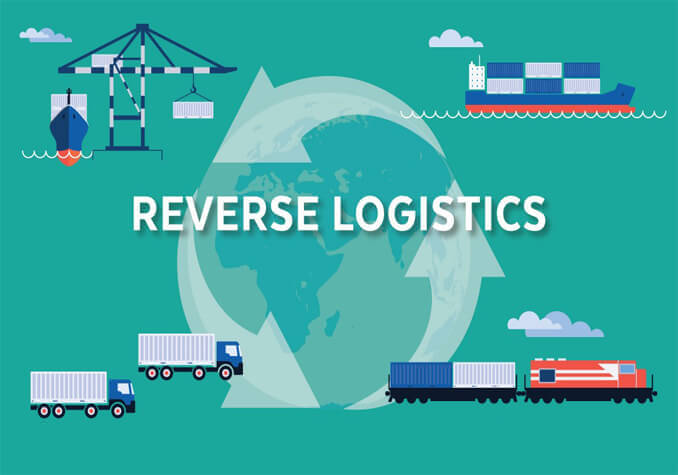Reverse logistics is one of the most operational challenges in the logistics industry, due to the complete volume and the costs linked to process of returns. Well managed and profitable reverse logistics have direct benefits.
Reverse logistics is the procedure of moving the goods from their last destination with the end goal of grasping the quality, or appropriate transfer and recovering its worth. Reverse logistics is also a method of planning, implementing, and controlling the effective, cost effective movement of raw materials, in-process inventory, finished goods and related information from the point of origin to the end point for the purpose of adjusting the consumer desires.
The process of reverse logistics is utilized to affirm the feasible reprocessing of materials furthermore includes interest for maintaining a strategic distance from returns and diminishing the forward plan of materials.
Reverse logistics embrace processing returned goods due to damage, seasonal record, replace, reclaim and additional records. Reverse logistics also take account of recycling programs, dangerous items programs, outdated equipment discarding, and salvage of the assets. Sending the materials in backward process is the actual reverse logistics activity.
A talented and professional reverse logistics company always takes care of the strategies and the application of the plans in the reverse UK to Pakistan cargo system. It gets a precise administration, invention and assets to expand the control and the advantage improvement furthermore enhances the data management to save more in authoritative time.
How to manage Reverse Logistics
In the oval of retailers and manufacturers the importance of the reverse logistics cannot be minimized. A big amount of the products is reversed by the consumers. In spite of the fact that managing these returned products draws significant charges through logistics, numerous logistics organizations appear to utilize insufficient processes for managing these returns. The major focus of the reverse logistics is on the management of merchandising returns.
The well management of these merchandising returnshas a substantialinfluence on ground level performance and on the environmental concerns. This processsupportsthe companies to review their returns management events and find where opportunities be present to decreaseexpenses and waste and increase customer service.
Now the reverse logistics become the most unnoticed part in logistic processes; however, the need for quick and efficient reverse logistics simply cannot be ignored. The vitalobjectives of forming reverse logistics process is to recover remaining value from returning materials that would otherwise be lost in product disposal, improve efficiency in the reverse supply chain, and minimize the waste.













